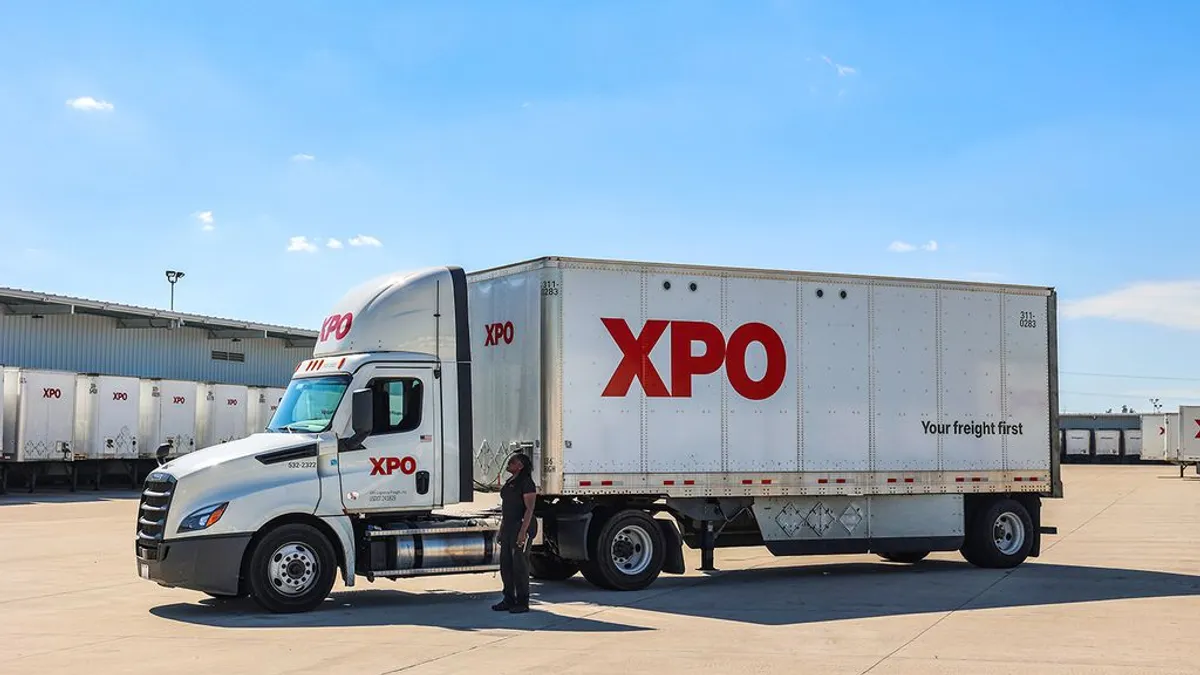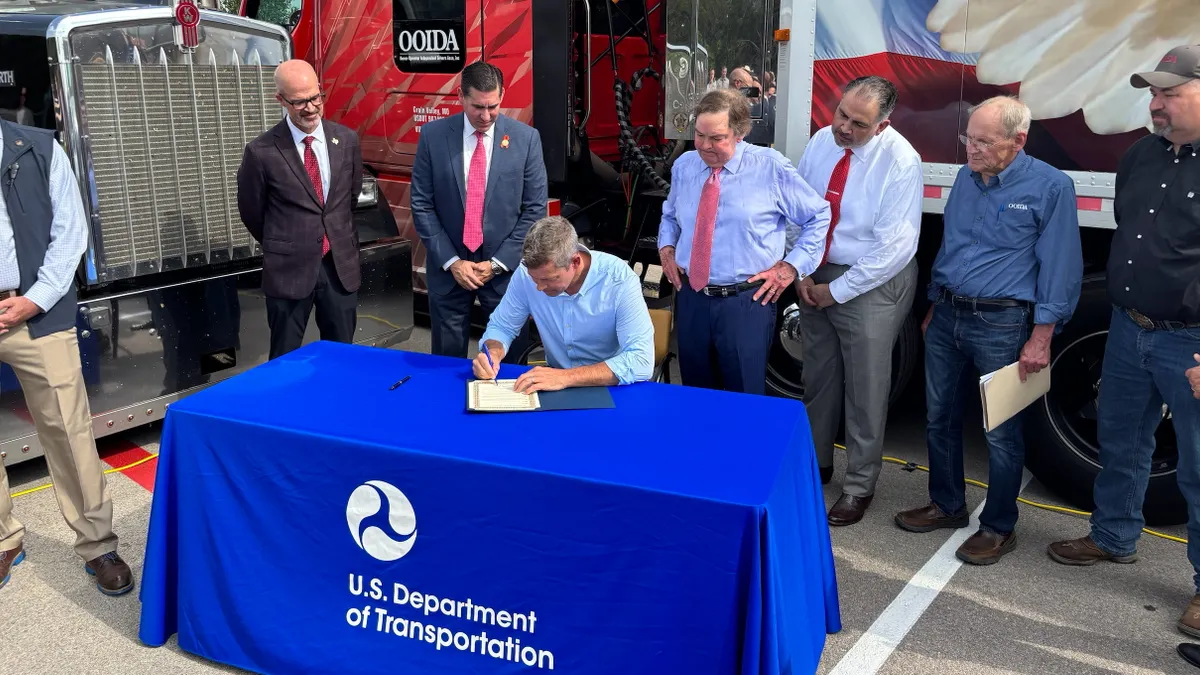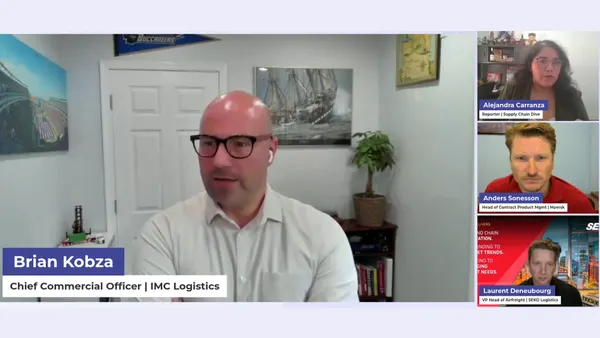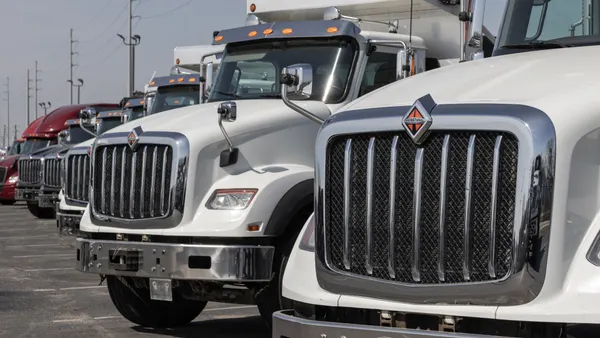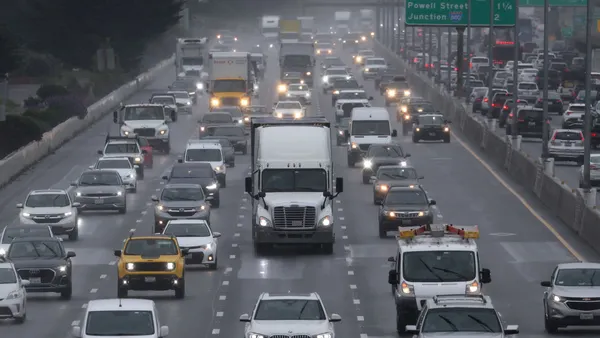Dive Brief:
- Volvo Group's North American deliveries for new trucks fell 79% for Q2 2020, and North American orders fell 44%, both compared to Q2 2019, CEO Martin Lundstedt said during a Friday call with investors, as many fleets put buying plans on hold due to market volatility and economic uncertainty. Worldwide, deliveries fell 58% year over year (YoY), and orders plunged 47% YoY.
- Lundstedt said six-month, year-to-date Volvo Trucks market share in North America fell from 9.4% to 9.3%. Mack Trucks' North American market share rose from 6.4% to 7.6%. "Segments where Mack is operating are holding up better and they are keeping positions there," he said.
- Service sales for trucks fell 14% globally compared to Q2 2019. Lundstedt described the decrease as "a big drop that is bigger than we normally see during downturns."
Dive Insight:
Lundstedt said Volvo's truck numbers were a particular example of the size and scope of the COVID-19 pandemic's effects on OEMs. Volvo's overall net sales decreased by 39% to $8.1 billion in Q2 2020, down from $13.3 billion in Q2 2019.
"Many of us sitting in this room here, we have been very long in this industry, 30-plus years," said Lundstedt. "We've never seen something like this." Volvo reported truck orders in Europe fell 52% and truck deliveries fell 55%. In South America, orders fell 60% and deliveries fell 57%. And in Asia, orders fell 25% and deliveries fell 24%.
But the Chinese truck market restarted with help from government subsidies to encourage vehicle replacement in the commercial sector. The Chinese government is also taking other measures to stimulate the economy, Volvo noted in its report.
U.S. Volvo and Mack plants idled in March and April but gradually restarted in May, Lundstedt said. To respond to the temporary global demand destruction, Volvo also moved to cut costs, including salary reductions, temporary layoffs and a reduction of purchased services. Lundstedt said the company laid off 10,000 employees and consultants.
As countries started to open up again, "both fleet utilization and order intake began to recover," Lundstedt said. "However, there is still significant uncertainty about the future economic development and demand for our products."



